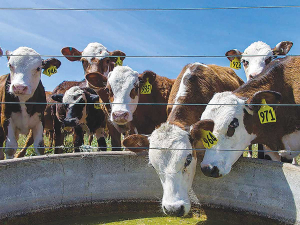NZ Catchment Groups Thrive with ‘Source to Sea’ Approach
The most successful catchment groups in NZ are those that have 'a source to sea' approach.
 Research shows the need for strategies to mitigate leptospirosis risk, says Professor Jackie Benschop.
Research shows the need for strategies to mitigate leptospirosis risk, says Professor Jackie Benschop.
Emerging research highlights mice as a critical yet underestimated source of leptospirosis, emphasising the need for improved strategies to control the spread of the infectious disease.
Led by researchers from Massey University, in collaboration with ecologists from the University of Auckland and wildlife vets from Brazil, the study aimed to assess the density of infected mice within populations and understand their implications for disease transmission on a broader scale.
The findings revealed notable fluctuations in both the prevalence and density of mice, with an unexpected discovery that these metrics fluctuated in reverse directions. Lead researcher Dr Marie Moinet says the discovery that the disease dynamics do not follow standard epidemiological theory has important implications.
“Our data shows that the risk of getting leptospirosis remains significant regardless of fluctuations in mouse density. Even at lower densities, roughly nine out of ten mice were infected, indicating a persistent risk. Additionally, infected mice tend to roam more extensively, potentially spreading the disease further. Increased awareness of mice as a source of leptospirosis is essential, especially since we are often in closer contact with them than we realise. The recent trend of mice sighted in supermarkets is a good reminder of that!”
By integrating ecological and epidemiological methodologies, the research provides new insights into wildlife disease dynamics, with mice being underemphasised as disease carriers within Aotearoa New Zealand. Given the ubiquitous presence of mice across the country, their population sizes often go unnoticed until they reach outbreak level. Moinet says it heightens the risk for infection but misconceptions around the disease can cause further complications.
“Leptospirosis cases and strains have historically been linked to livestock, creating the misconception that it’s only a farmer’s disease. Contact with infected mammal urine or contaminated water poses a significant transmission risk, with house mice harbouring the prominent Ballum strain in recent cases.
“The lack of awareness sets a dangerous precedent for those not in direct contact with livestock to be misdiagnosed or not receive proper treatment despite the need of a timely diagnosis.”
Infected individuals can show a wide range of symptoms, from asymptomatic to severe, including headache, fever, meningitis and kidney failure. Two-thirds of reported cases result in hospitalisation, averaging four nights, with half experiencing long-lasting symptoms. Early diagnosis and antibiotic treatment is critical.
“While current control measures of leptospirosis are tailored for livestock strains, our study underlines the need for strategies that address rodent-associated strains. Awareness is the key to mitigation, particularly among health care providers, as anyone in contact with mice, including trampers, gardeners and urban residents, is at risk,” Moinet says.
 |
|---|
|
Professor Jackie Benschop. |
Conducted over two years in a farm setting, the study involved humane trapping and testing of mice for Leptospira. While focused on a specific geographic area, the findings call for similar studies in urban settings to fully grasp the disease’s urban environments.
Professor Jackie Benschop says the research shows the need for comprehensive strategies to mitigate leptospirosis risk.
The collaborative research was completed by Dr Marie Moinet, Professor Jackie Benschop, Dr David Wilkinson and Dr Emilie Vallee of Massey University, Professor James Russell of University of Auckland Dr Carlos Abarahão and Dr Vinícius Gasparotto from the Brazilian Institute for Conservation Medicine.
The study is published in the Journal of Applied Ecology: Density matters: How population dynamics of house mice (Mus musculus) inform the epidemiology of Leptospira.
Donald Trump's latest tariff tantrum has again thrown the world of trade into a new round of turmoil and uncertainty, and NZ is caught up in it.
The third edition of the NZ Dairy Expo, held in mid-February in Matamata, has shown that the KISS principle (keep it simple stupid) was getting a positive response from exhibitors and visitors alike.
Twenty years ago, South African dairy farm manager Louis Vandenberg was sent to a farm in Waikato to provide training on Afimilk technology.
Strong farmgate milk price is helping boost investment on farms, says PGG Wrightson chief executive Stephen Guerin.
Fonterra's 460 milk suppliers in Australia, who will switch to Lactalis end of this month, are unfazed with the impending change.
The 5+ A Day Charitable Trust has launched a collection of affordable recipes designed to turn everyday vegetables into seasonal stars.

OPINION: A mate of yours truly reckons rural Manawatu families are the latest to suffer under what he calls the…
OPINION: If old Winston Peters thinks building trade relations with new nations, such as India, isn't a necessary investment in…